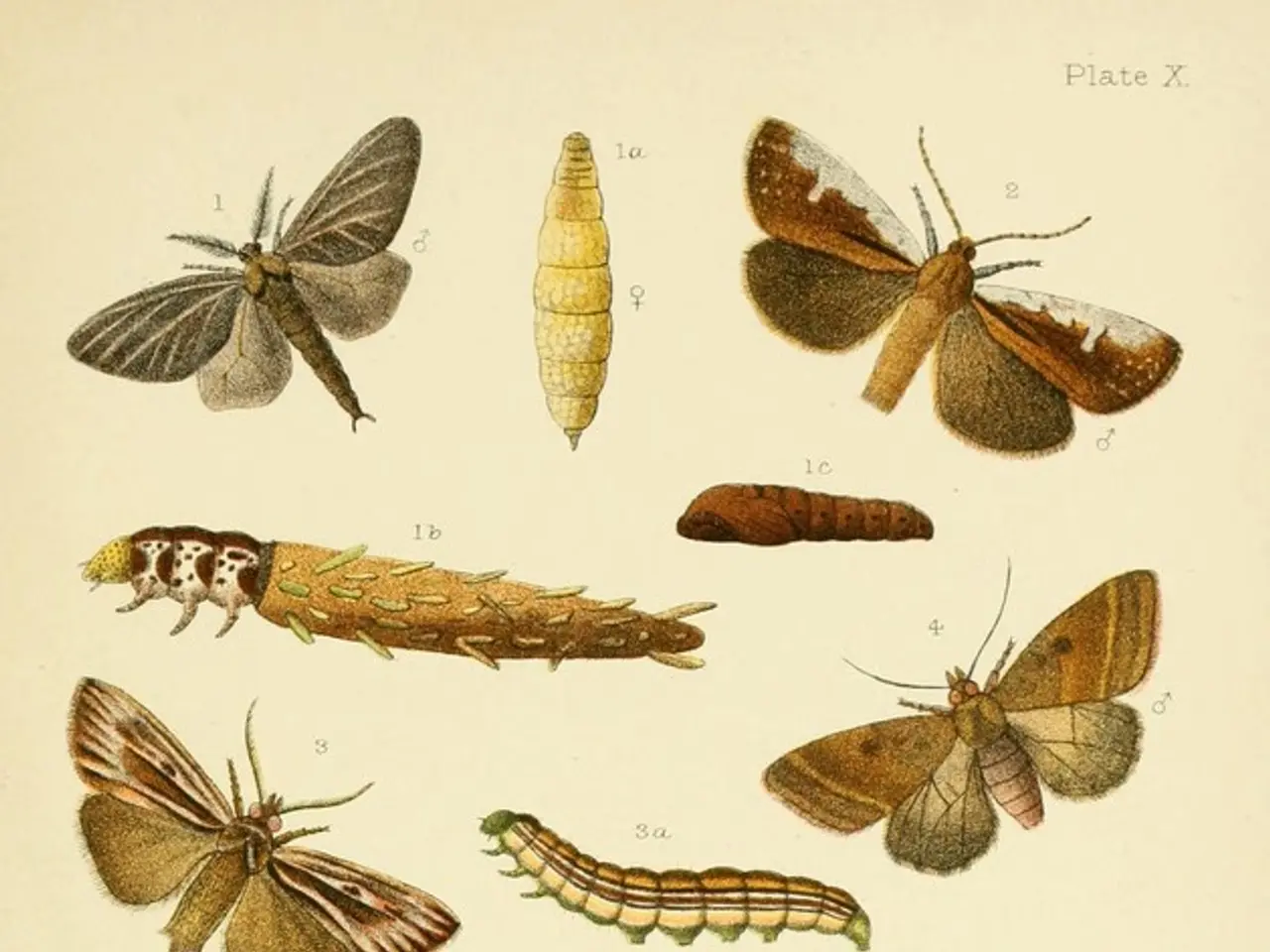Facts about Alzheimer's and Various Types of Dementia: A Comprehensive Overview
Dementia, a condition that affects memory, thinking, reasoning, and other brain functions, is not limited to Alzheimer's disease. While Alzheimer's is the most common form of dementia, several other types exist, each with its unique characteristics and causes.
Vascular Dementia is one such type, caused by interruptions in blood flow to the brain, often due to stroke. This can lead to problems with problem-solving, slower thinking, and loss of focus [1][2][4].
Lewy Body Dementia (LBD) is another form of dementia. It involves abnormal protein deposits (alpha-synuclein) affecting brain function, causing symptoms such as cognitive and movement problems, sleep disturbances, hallucinations, and mood changes. Parkinson’s disease dementia is considered a form of LBD with motor symptoms preceding cognitive decline [1][2][3].
Frontotemporal Dementia (FTD) results from degeneration of the frontal and/or temporal lobes and often presents earlier than other dementias (ages 40s–60s). It typically causes changes in behavior, personality, language difficulties, and sometimes movement issues [1][2][3].
Mixed Dementia involves a combination of two or more types of dementia, commonly Alzheimer's disease mixed with vascular dementia. It becomes more frequent with aging and is frequently diagnosed retrospectively or at autopsy [1][3].
Normal Pressure Hydrocephalus (NPH) is a type of dementia caused by impaired cerebrospinal fluid absorption. It is characterized by a classic triad of gait disturbance, urinary incontinence, and dementia. In some cases, it can be treated successfully with surgery [1][3].
Creutzfeldt-Jakob Disease (CJD) is a rare, rapidly progressing dementia caused by prion proteins [1][3].
These types of dementia reflect the variety of underlying causes and manifestations of dementia, emphasizing the importance of neurological evaluation for accurate diagnosis [4].
It's essential to note that there is no definitive evidence that dementia is genetic. However, people aged 65 and older are at a higher risk for dementia compared to younger age groups, with as many as one-third of people aged 85 and older having some form of dementia [5].
The exact cause of dementia and how it affects the brain are still not fully understood. However, diseases such as Alzheimer's can cause the brain to shrink, or "atrophy." This is due to the build-up of abnormal clumps of protein, such as amyloid plaques in the case of Alzheimer's disease [1][6].
Dementia is diagnosed through a series of tests and the patient's medical history. While there is not yet a cure for dementia, symptoms can be managed [7]. Early detection and diagnosis, such as with the new blood test for Alzheimer's, may help in better managing the condition and improving the quality of life for those affected [8].
[1] Alzheimer's Society. (n.d.). Types of dementia. Retrieved from https://www.alzheimers.org.uk/about-dementia/dementia-symptoms-and-diagnosis/dementia-types
[2] Mayo Clinic. (2021). Dementia. Retrieved from https://www.mayoclinic.org/diseases-conditions/dementia/symptoms-causes/syc-20351659
[3] National Institute on Aging. (2021). What is dementia? Retrieved from https://www.nia.nih.gov/health/what-dementia
[4] National Institute on Aging. (2021). Dementia beyond Alzheimer's. Retrieved from https://www.nia.nih.gov/health/dementia-beyond-alzheimers
[5] World Health Organization. (2020). Dementia. Retrieved from https://www.who.int/news-room/fact-sheets/detail/dementia
[6] Alzheimer's Research UK. (2021). What causes Alzheimer's disease? Retrieved from https://www.alzheimersresearchuk.org/about-alzheimers-dementia/what-is-alzheimers-disease/what-causes-alzheimers-disease
[7] Alzheimer's Society. (n.d.). Living with dementia. Retrieved from https://www.alzheimers.org.uk/about-dementia/living-with-dementia
[8] Science Daily. (2021). New blood test for Alzheimer's disease could help with early detection and diagnosis. Retrieved from https://www.sciencedaily.com/releases/2021/03/210310153346.htm
Science has identified various types of dementia, including Vascular Dementia, Lewy Body Dementia (LBD), Frontotemporal Dementia (FTD), Mixed Dementia, Normal Pressure Hydrocephalus (NPH), and Creutzfeldt-Jakob Disease (CJD). Each of these conditions can affect mental health, health and wellness, and even cause neurological disorders. For instance, Vascular Dementia is caused by interruptions in blood flow to the brain, leading to symptoms such as slower thinking and loss of focus.




